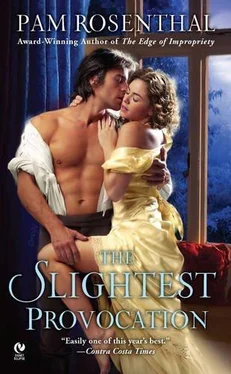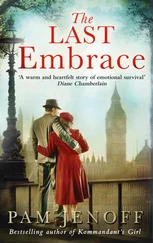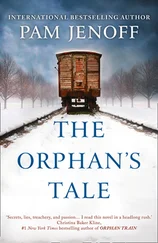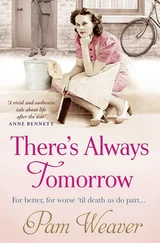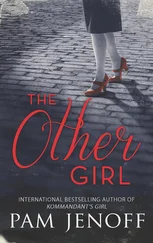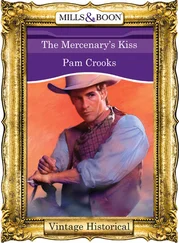“Yes, Kit.”
“Mary, will you go there with me?”

It was one of Fannie’s great delights to dance at a country assembly. How fortunate, she thought, that a young lady not yet out to society could do so, and what a pleasure to share the Cauthorn festivity with Elizabeth, who’d missed the last two of these events while her family had been in mourning.
Fannie suspected she’d always prefer this sort of party, even when able at last to attend the fashionable ones in town. Dancing at Almack’s and in private London ball-rooms next year would be work. Challenging work, to be sure-work that tested her skills and mettle as war or politics might do for a gentleman-but work just the same. Whereas a country assembly, to benefit the district’s medical clinic and attended by anyone who could afford a ticket, served as a respite from all that, as well as a sort of ritual of fancy and condescension; the spectacle of a baronet’s daughter dancing with a farmer’s son allowed everyone to imagine their community an unspoiled Albion of toleration and fellow feeling, at least for an evening’s duration.
It had been at a series of parties like this one, down in Buckinghamshire last year, that Adam Evans had silently and fervently wooed Philamela. Fannie could remember how the young curate’s solemn gaze had remained fixed upon her sister’s face while Phil, Fannie, and Lady Grandin floated like the Graces through the figures of the set and down the rows of dancers. Nodding and smiling at everyone, Fannie and her mama and sister had shown themselves delighted to dance with anything in a waistcoat.
Of course, they’d been obliged to do so, to maintain Papa’s popularity in the district and Fannie’s brother Edward’s candidacy in the upcoming election. But Fannie’s delight had been quite unfeigned, both for the vigor of the dancing and the fascination of watching her sister fall in love. Not to speak of the sly pleasure of witnessing something quite invisible to her mama. In the midst of all that energetic capering, Phila and Mr. Evans had been so shy, so solemn, so decorous and dutiful that Lady Grandin missed the entire thing, even as it unfolded under her very nose.
And although at the time she’d found the yearning in the lovers’ eyes a bit sentimental for her taste, during these past few days Fannie had found herself reliving it, humming snatches of dance music to herself as though it had been she who’d been courted so ardently and not her less fortunate sister.
Which led her to see tonight’s festivity through a particularly rosy glow of anticipation, as she and the rest of the party from Beechwood Knolls passed through the large double doors of the Cauthorn assembly room. In its own way, Fannie thought, a country assembly was a very romantic thing, and anything might happen while one was in attendance.
“Come on, Fannie.” Elizabeth tugged at her arm. “You’ll get us trampled. My word, what a lot of people there are. I didn’t know there’d be so many. But you do think, don’t you, Fannie, that we’ll be asked to dance?”
Absurd, her cousin’s attack of nerves. But it would soon fade to nothing, Fannie thought, when Elizabeth began to feel the effect her looks were having-even now, among the crush of people at the door.
And what a lovely, variegated crush of people, so colorful and picturesque against the assembly room’s excellent proportions. Fannie smiled up at Fred.
“Come on,” she told him, “I want to dance this reel.”
They’d gotten here rather earlier than intended, accompanied by Lord Ayres and Miss Kimball. The Grandin carriage had arrived at eight, spilling them out into the midst of the crowd of merchants, small trades-people, and their families, who liked to get as much dancing as they could for the price of their tickets.
Fannie suspected that Elizabeth’s mama and aunt had coveted a peaceful evening and had thus conspired to pack them off so adroitly. Of course, Miss Kimball might have objected to the lack of ton implicit in an early arrival. Fannie was grateful she hadn’t-and even Fannie’s mama would have afforded that promptitude was a venal, rather than a mortal, sin against gentility (unlike gluttony, Miss K. having immediately and promptly disappeared among the refreshment tables). And so Fannie found herself unreservedly happy to dance for the pure pleasure of it-before another interesting party made its entrance and the important events of the evening unfolded (if, in fact, they were to unfold; she crossed her fingers for an uncharacteristically superstitious moment, before opening them to take hold of her partner’s arm).
The reel having drawn to a merry close, she set Fred free to prowl about in wait for the Halseys. Of course, neither she nor Elizabeth lacked for partners, and the more recherché, Fannie thought, the better. She entirely enjoyed being guided about the floor by a most agreeable young blacksmith, a Mr. Smith as it happened, and why shouldn’t he be so named?-well built, with coal-black eyes glowing over a rather alarming yellow cravat.
Mr. Smith yielded to a baker, Mr. Bunns (no, it must have been Barnes); Mr. Barnes to Mr. Wills, whose father owned the local drapery establishment. Laughing and curtsying, rosy and breathless, Fannie caught Elizabeth’s arm and bade farewell to the two young men squabbling over which of them was to bring her a glass of lemonade.
“It’s delightful, isn’t it?” she whispered to her cousin. “Much more fun than Almack’s, I should think. And-oh, good, I’m parched-here’s Lord Ayres with our refreshments.” Country dance or not, he wouldn’t miss a chance to fetch a drink and a biscuit for the two prettiest young ladies in the room.
“More fun than Almack’s? ” Elizabeth, who’d also had a picturesque series of partners, giggled with pleasure, sighed with evident relief, and gaped in utter astonishment at what Fannie had just told her.
She looked like she’d been out riding-pale gold hair just a bit disordered, cheeks like dark damask roses. It was her cousin’s best face, Fannie thought, but the face had been prettier before her cousin had come to know it her best.
“Oh, but Almack’s must be so much lovelier,” Elizabeth was protesting, “though I do like the decorations here. See how they’ve looped up the streamers with red and white paper roses, Fannie. Or do you think they’re silk?”
“Almack’s isn’t lovely at all,” Fannie replied, “at least not from Philamela’s description of it. Whereas this is an unusually well-proportioned room. Though I’ll grant that a private ball in a great London house is something to see…” Fannie’s mama had spoken approvingly of a particularly lavish event in Grosvenor Square, the walls of the party-giver’s high-ceilinged ballroom entirely lined with fresh-picked rosebuds.
“A ballroom lined with rosebuds? It can’t be. You’re teasing-you’re… you’re funning. ” Elizabeth’s beautifully curved lips had shaped themselves into something Fannie might be tempted to call a simper. “You’re making it up, Fannie, to taunt a poor country girl who hasn’t had your advantages.”
It took a bit of work on Fannie’s part to keep her eyes from widening into an unseemly stare. Wherever had Betts learned how to be so coy?
“Don’t you think so, Lord Ayres?” Elizabeth continued.
The simper had become a pout, the entire thing, it seemed, staged for Lord Ayres’s benefit. Elizabeth gazed up at him from beneath her lashes. “She must be teasing, mustn’t she, my lord, for surely no one, not even the Prince Regent, could afford that sort of expense.”
Читать дальше
